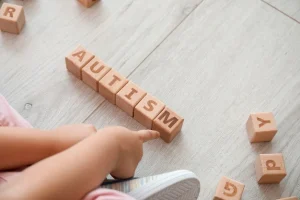8 Effective Speech Therapy Strategies for Parents to Use at Home
By Wellness Hub
Last Updated: November 1, 2024
Unlocking your child’s potential starts at home. For parents, being actively involved in speech therapy can make all the difference in their child’s communication journey. At-home speech therapy exercises don’t just reinforce professional guidance; they empower parents to play a hands-on role in nurturing essential skills. Speech therapy extends beyond the therapist’s office— it’s a continuous process that strengthens speech clarity, boosts confidence, and enhances social interactions. By integrating speech therapy into daily routines, you’re setting the foundation for your child’s brighter communication future, giving them the tools to express themselves confidently in every situation.
Also read: The Essential Guide to Speaking Therapy: What You Need to Know
1. Model Clear Speech Sounds
What to Do: Encourage parents to speak clearly, using deliberate and correct pronunciation with each word. When engaging with your child, focus on speaking at a moderate pace, ensuring each sound is distinct. For instance, when saying “cat,” emphasize the “c,” “a,” and “t” sounds. Parents can also try repeating words during conversations to reinforce correct pronunciation naturally.
Why It Works: Children learn by listening, and modeling clear speech provides a strong reference for them to understand and imitate sounds. This practice builds sound awareness, helping children distinguish between different phonemes and aiding in speech clarity. When parents consistently model accurate pronunciation, it strengthens a child’s ability to recognize and reproduce sounds, forming the foundation for effective language skills.
2. Repetition for Reinforcement
Key Approach
One of the most effective ways to support a child’s language development at home is through repetition. Repeating words and phrases is a simple yet powerful strategy that helps kids become familiar with sounds, meanings, and sentence structure, ultimately aiding speech clarity and language recall. Whether it’s repeating “apple” as you show them a fruit or saying “good job!” each time they complete a task, consistency in repetition makes a significant difference in language learning.
Supporting Evidence
Studies consistently show that repetition plays a critical role in reinforcing language skills in children. For instance, experts from the American Speech-Language-Hearing Association (ASHA) highlight that hearing words multiple times helps children solidify their understanding and recall of vocabulary. Likewise, Dr. Bruce Tomblin, a speech-language pathologist, emphasizes that repeated exposure to language sounds and phrases fosters stronger connections in the brain, laying a foundation for successful speech and language acquisition.
Repetition is not just a technique—it’s a key component of early language development that can easily be implemented by parents and caregivers at home to support a child’s speech growth.
3. Create a Language-Rich Environment
Building a language-rich environment at home is one of the most effective ways to support a child’s speech and language development. By consistently surrounding your child with words, you can foster stronger language skills and make everyday moments meaningful. Here’s how you can integrate language into daily routines to boost your child’s vocabulary and communication abilities.
Strategies to Incorporate Language into Daily Routines
| Daily Routine | Strategy | Example |
|---|---|---|
| Meal Times | Describe the food, utensils, and actions. | “I am putting some rice on your plate. It’s white and fluffy.” |
| Getting Dressed | Narrate what you’re doing as your child gets ready. | “Let’s put on your red shirt. It has big buttons!” |
| Bath Time | Talk about body parts, textures, and sensations. | “Now we’re washing your arms. The water is warm and bubbly.” |
| Playtime | Use descriptive language to label toys, actions, and concepts. | “You’re stacking the blue block on top of the yellow one!” |
| Outdoor Walks | Point out and describe objects you see on the walk. | “Look at the big green tree! The leaves are moving in the wind.” |
| Storytime | Engage by asking questions and emphasizing new vocabulary. | “This character is brave. Do you know what ‘brave’ means?” |
| Cleaning Up | Give instructions using descriptive language. | “Let’s put all the soft stuffed animals in this big basket.” |
Why a Language-Rich Environment Works
Research consistently supports the importance of immersive language environments in early childhood development. When children are frequently exposed to descriptive language, they learn to associate words with actions, objects, and feelings, enriching their vocabulary and comprehension. By creating these verbal connections in real-time, children gain a practical understanding of language in context, making it easier for them to replicate and use language independently.
4. Encourage Imitation and Mimicking
Imitation is a foundational skill in language learning and speech development. By encouraging children to mimic sounds, words, and expressions, parents can foster early language skills that serve as building blocks for more complex communication.
How to Apply:
Try using simple imitation games to engage your child in copying sounds and words. Start by introducing fun, repetitive sounds like “ba-ba” or “da-da” and encourage your child to repeat after you. Progress to simple words that are easy for them to mimic, such as “mama” or “hi.” Reinforce their attempts by clapping, smiling, or giving a thumbs-up, showing that their efforts are celebrated.
Expert Insight:
Child development experts emphasize the importance of imitation in early speech development. Imitation helps children connect sounds to meaning, enhancing their ability to understand and produce language. By incorporating playful imitation exercises at home, parents and caregivers give children a valuable practice ground for developing their speech skills.
Encouraging children to imitate sounds and words not only builds language ability but also supports social and emotional connection, as they feel acknowledged and connected during these interactive moments.
5. Read Aloud Daily and Ask Questions
Reading aloud daily can be a powerful tool to boost your child’s language development. Selecting interactive books that captivate their attention while introducing new words is key. Pause occasionally to ask open-ended questions, such as “What do you think will happen next?” or “How do you think this character feels?” These prompts encourage your child to think, respond, and expand their vocabulary. The dialogue between you and your child helps them understand language patterns, sentence structure, and conversational flow, which are critical for language skills.
Tips for Effective Reading:
- Choose Interactive Books: Look for books that invite interaction with questions, predictions, or actions. Books with vibrant illustrations and engaging characters capture interest and motivate your child to participate actively.
- Ask Open-Ended Questions: Open-ended questions give your child the opportunity to express their thoughts and feelings. This practice not only enhances language skills but also fosters critical thinking and imagination.
Benefits Backed by Research
Research consistently shows that reading aloud with children supports language development, vocabulary growth, and cognitive skills. Studies from leading child development centers emphasize the positive impact of interactive reading in building early language skills, as children engage more actively and retain new words better through shared reading experiences.
6. Practice Turn-Taking Conversations
Building your child’s conversational skills begins with turn-taking. This simple yet powerful exercise encourages your child to understand when to speak and when to listen, a fundamental aspect of effective communication.
Method
Start with easy back-and-forth exchanges. For example, ask your child questions like, “What’s your favorite color?” and let them answer. Then, prompt them to ask you a similar question in return. Keep the conversation flowing by taking turns speaking, modeling responses, and adding variety by discussing topics your child enjoys.
Expert Tip
Speech therapists highlight turn-taking as crucial for developing both social and speech skills. Practicing turn-taking helps children improve their focus, wait for their turn, and learn to respect conversational cues, essential for real-life interactions. By regularly engaging in these conversations, your child can become a more active and responsive communicator, better prepared for interactions at school, with friends, and in everyday life.
Turn-taking exercises like these are essential steps in speech development, helping to build confidence and a natural flow in conversations.
7. Celebrate Small Wins and Progress
Recognizing small wins in your child’s speech therapy journey can be a powerful motivator. Each new sound mastered, word pronounced, or attempt made to communicate deserves celebration. This reinforcement builds their confidence, making them feel accomplished and encouraging them to keep trying. Celebrating progress isn’t just about the milestone itself; it’s about showing your child that you’re noticing their efforts. Positive reinforcement like this is rooted in well-researched psychological principles, reinforcing good behavior and effort through acknowledgment.
How to Celebrate Small Wins
- Verbal Praise: Say something specific, like, “I loved how clearly you said that word!” to reinforce what they did well.
- Rewards and Treats: Simple rewards, like extra playtime or a small treat, can provide a tangible reminder of their progress.
- Progress Chart: Use stickers or stamps on a chart to visually track and celebrate each step forward, which can be especially encouraging for younger kids.
- Quality Time Together: Let your child know that their effort matters by spending time doing their favorite activity as a reward.
When you celebrate these moments, you’re not only marking progress but also strengthening their resilience and enthusiasm. This positive, encouraging approach aligns with proven psychological strategies, helping your child feel valued, motivated, and ready for the next step in their speech therapy journey.
8. Consistency is Key: Make It a Daily Routine
Practical Advice
Set aside a dedicated time each day to practice speech therapy exercises with your child. Even just 10-15 minutes of focused practice can significantly impact their progress. Integrating speech therapy activities into your daily routine makes the exercises feel like a natural part of your child’s day, making them more enjoyable and less like a chore. Consider pairing these sessions with existing routines, such as after breakfast or before bedtime, to build consistency.
Supporting Facts
Research shows that consistent practice is crucial for skill acquisition in children, especially for developing new language and speech skills. A study published in The Journal of Speech, Language, and Hearing Research highlights that children who engage in daily practice show faster improvement in speech clarity and language understanding. Consistency builds familiarity, which in turn fosters better retention of new words and sounds. By maintaining a regular routine, parents can create a stable environment that supports their child’s speech development and boosts their confidence.
Conclusion
In conclusion, implementing these strategies can make a transformative impact on children’s speech and language progress, empowering parents to actively support their child’s development journey. Consistent efforts at home strengthen foundational skills, which are crucial for effective communication. At Wellness Hub, we’re dedicated to providing parents with expert guidance and resources tailored to their child’s unique needs. If you’re seeking personalized support or have specific concerns, don’t hesitate to consult our professionals. Together, we can help unlock your child’s full potential. Visit Wellness Hub to explore how we’re revolutionizing speech therapy for lasting growth and confidence.
Frequently Asked Questions
1. What are the best speech therapy strategies for parents to use at home?
Parents can use strategies like modeling clear speech, repetition, turn-taking, and creating a language-rich environment. These techniques can support speech development effectively when used consistently.
2. How can I help my child’s speech development at home?
Engaging in daily activities like reading aloud, using visual cues, and celebrating small progress can make a big difference. Integrating speech practice into daily routines keeps learning fun and consistent.
3. Why is repetition important in speech therapy?
Repetition helps reinforce words and sounds, making them familiar to children. Studies show that repeated exposure aids language retention and boosts confidence in using new words.
4. What is a language-rich environment, and how can I create one?
A language-rich environment surrounds your child with words, conversations, and verbal interactions. Narrating daily activities, describing objects, and having frequent conversations are simple ways to achieve this at home.
5. How does turn-taking in conversations benefit my child’s speech?
Turn-taking helps develop essential conversational skills like listening, responding, and patience. It builds a child’s confidence in interacting and understanding the rhythm of communication.
6. Why is daily reading important for my child’s speech development?
Reading aloud introduces new vocabulary, language structures, and sounds, enriching a child’s speech skills. Asking questions while reading also encourages children to think and express themselves.
7. How do visual cues help in speech therapy at home?
Visual cues like gestures and facial expressions help children connect words with actions, enhancing their understanding and retention. Using visual aids makes learning interactive and engaging.
8. What are the benefits of celebrating small speech milestones?
Recognizing small successes in speech progress builds a child’s confidence and encourages them to keep practicing. Positive reinforcement has a long-lasting effect on learning and motivation.
9. Can I see real results with at-home speech therapy techniques?
Yes, with consistency and the right techniques, parents can observe noticeable improvements. However, consulting a speech therapist for a personalized plan may further support the child’s progress.
10. When should I seek professional help for my child’s speech development?
If you notice persistent delays in speech milestones, it’s beneficial to consult a licensed speech therapist. They can provide tailored guidance and interventions based on your child’s needs.
About the Author:
Shravanaveena Gajula
M.Sc ., Speech and Language Pathology (9+ years of experience)
Shravanaveena Gajula is a dedicated Audiologist and Speech-Language Pathologist with a BASLP and an M.Sc in Speech and Language Pathology. With experience spanning multiple settings, including Wellness Hub and Ashray Akruti, Veena specializes in a wide range of disorders from developmental issues in children to speech and language assessments in adults. Her expertise includes parent counseling, managing speech sound and fluency disorders, and creating individualized therapy programs. Veena is also PROMPT certified and an author of several insightful blogs on speech and language pathology, aiming to educate and assist caregivers in supporting their loved ones.
Book your Free Consultation Today
Parent/Caregiver Info:
Client’s Details:
* Error Message









